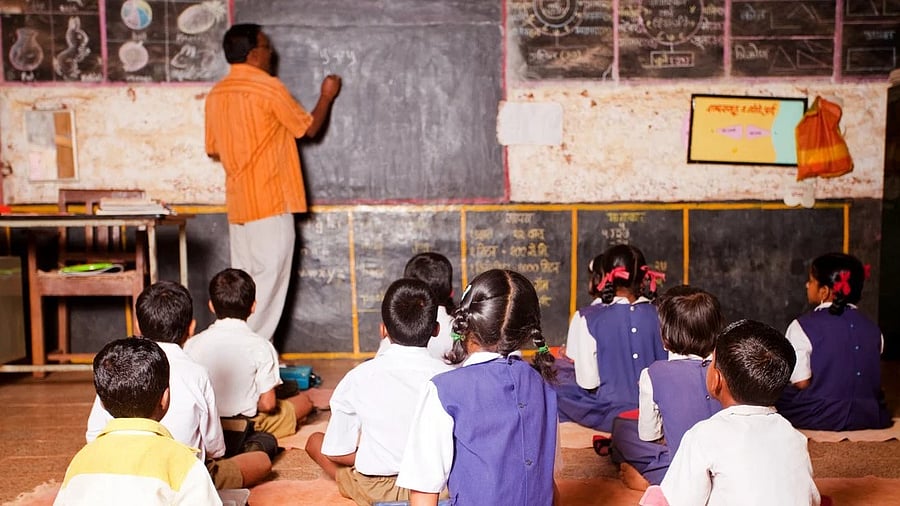
Globally, the report shows that, every day, 412 million children wake up in extreme monetary poverty, surviving on less than $3 per day.
Credit: iStock/ Representative image
New Delhi: UNICEF has recommended that children be part of the decision making process in policies that affect them, and that, policies and budgets be centred around them. In The State of the Worlds Children 2025: Ending Child Poverty – Our Shared Imperative, released on World Children’s Day, the UN body also states that in India, multidimensional poverty in India fell from 29.2% in 2013-14 to 11.3% in 2022-23.
In India, which is the most populous country and home to approximately 460 million children under 18 years of age, the report states that over 248 million citizens, including children, escaped multidimensional poverty between 2013–14 and 2022–23.
Globally, the report shows that, every day, 412 million children wake up in extreme monetary poverty, surviving on less than $3 per day. “Children are more than twice as likely as adults to live in extreme monetary poverty. Because their bodies and minds are still developing, children are also more vulnerable to the effects of poverty,” the report states.
The report also says that more than 1 in 5 children in low and middle-income countries are severely deprived in at least two vital areas critical for their health, development and well-being. “Sanitation is the most widespread severe deprivation, with 65% of children lacking access to a toilet in low-income countries, 26% in lower-middle income countries, and 11% in upper-middle income countries,” the report says.
In the keynote presentation,UNICEF India Representative, Cynthia McCaffrey, highlighted the progress made by India in poverty reduction and how India’s flagship programmes have supported investments in children, steering India to be on track for SDG 1.2 ahead of the 2030 endline.
Citing Niti Aayog data, the report says that there has been a significant increase in social protection coverage from 19% in 2015 to 64.3% in 2025, reaching 940 million citizens. “… combined with sustained social sector investments, (this) contributes to this progress in poverty reduction,” the report states.
“There is no greater return on investment than investing in children. India’s progress shows that further acceleration of effective programmes can help reach the last mile and India’s Vision 2047.Improving children’s wellbeing isn’t just about resources it’s about the collective will and leadership to prioritise children in every decision we make,” said Cynthia McCaffrey, UNICEF India Representative.
